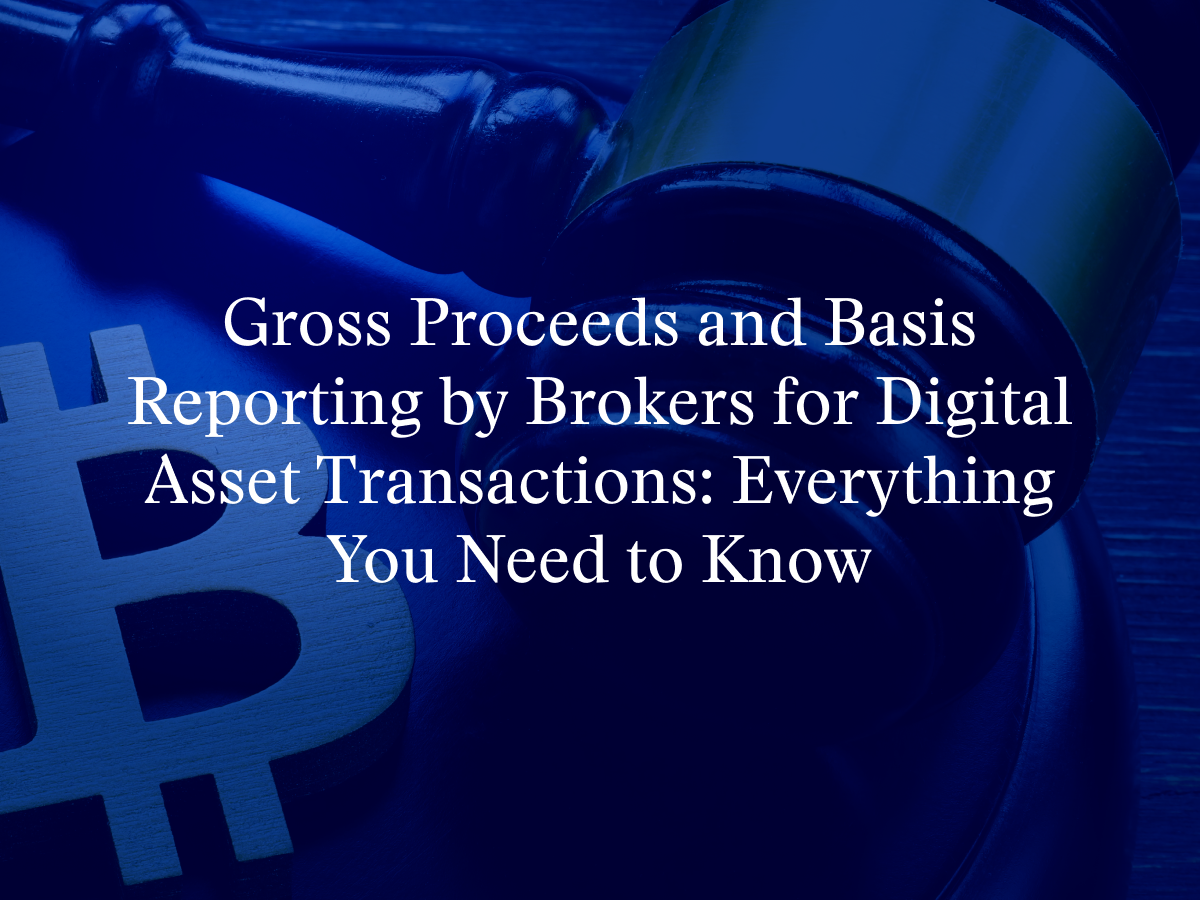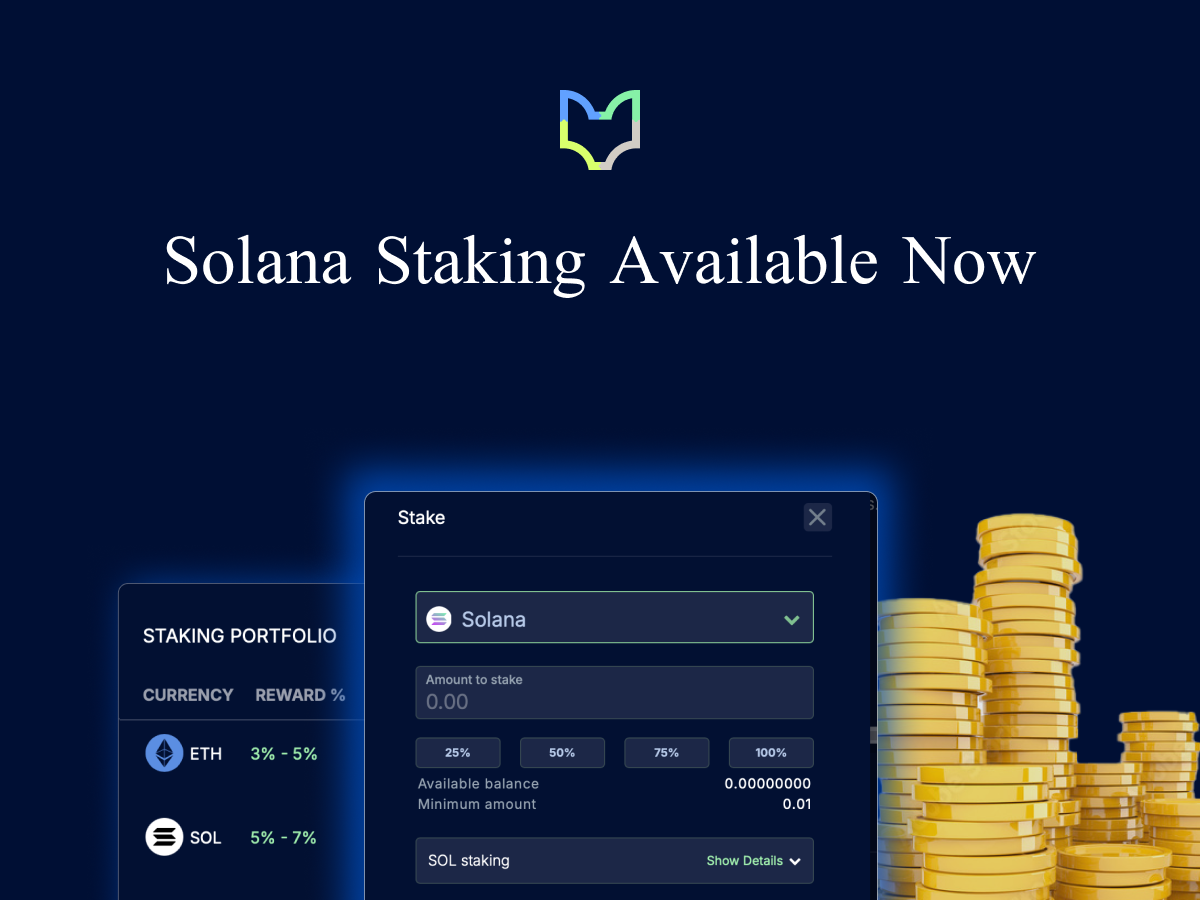DISCLAIMER: The content provided in this blog post is for informational purposes only. It is not intended to be a substitute for professional tax, investment, or legal advice. Always seek the guidance of a qualified professional or other knowledgeable individual regarding any tax, investment, legal or other concerns you may have. Neither sFOX nor the author of this post shall be held liable or responsible for any decisions or actions taken based on the information provided in this post.
In the legislation known as the Infrastructure Investment and Jobs Act (referred to as the “Jobs Act”), the United States Congress introduced fresh obligations for Brokers pertaining to the tax implications and information disclosure related to activities involving Digital Assets. The Internal Revenue Service (IRS) has now released a set of preliminary rules that outline the manner in which Brokers are expected to adhere to these regulations.
At sFOX, we strive to keep our entire community up-to-date on developments in the bitcoin and crypto sector, particularly as those developments pertain to their trading activity or asset management venues. In that spirit, this article highlights the key points distilled from containing this new guidance.
Scope of Proposed Rules
The proposed rules center on the requirements of brokers concerning the reporting of sales involving digital assets requiring production and submission of annual tax and withholding documentation
Subsequent rules will be proposed with a focus on:<
- The integration of transfer statement reporting as stipulated by section 6045A(a), which pertains to the transfer of digital assets originating from a broker.
- The implementation of broker information reporting as outlined in section 6045A(d), encompassing covered security transfers that do not involve transfers to accounts maintained by individuals already recognized as brokers or those that need to be reported as sales.
What is Required from Brokers?
Brokers will be required to collect information about taxpayers (Form W-9) or exempt foreign persons (Form W-8BEN) and distribute Form 1099-DA to both the taxpayer and the IRS, at a minimum.
A new tax document, Form 1099-DA, which is currently in the finalization stage and expected to be completed in the upcoming months, will supersede the necessity for Brokers to generate and distribute Form 1099-B.
Forms 1099-MISC (staking), 1099-NEC (mining), and 1099-INT (interest) will likely continue to be required for Digital Asset Transactions which do not involve sales activity.
Who Qualifies as a Broker?
Centralized Venues
Clearly, venues like sFOX will qualify as Brokers who will be subject to the new regulations for certain activities. As has been the case for the past 9 years, sFOX puts compliance first and will make sure that both its operations and its clients remain in good standing with the latest regulatory guidance, and we will keep you posted on continued developments.
“Decentralized” Venues
Critically, the rules treat the to modify the operation of a platform to obtain customer information as in a position to know that information, and being required to be compliant with the new rules.
The Treasury Department and the IRS expect that this clarified proposed definition will ultimately require operators of some platforms generally referred to as “decentralized” exchanges to collect customer information and report sales information about their customers, if those operators otherwise qualify as Brokers.
The proposed rules specifically note the example of “a digital asset trading platform, including an operator of a peer-to-peer or AMM trading platform, that facilitates a digital asset sale on behalf of a customer being required to file an information return, and furnish a payee statement with respect to that sale, reporting the gross proceeds realized by the customer as a result of that sale.”
Finally, a group of persons providing facilitative services that are in a position to know the customer’s identity and the nature of the transaction effectuated by customers may be treated as a Broker whether or not the group operates through a legal entity (i.e. DAO) if the group is treated as a partnership or other person for U.S. Federal income tax purposes.
This focus on decentralized venues and organizations is likely to have meaningful implications for the growth, sustainability, and product direction of many projects.
Other Brokers
- Stablecoin issuers that redeem their stablecoins
- Certain business types dealing in exchange of digital assets for cash, stored-value cards, services, or other property (including different digital assets)
Notable Exceptions
There are also several helpful carve-outs for entities to which the term “Broker” does not apply:
- Merchants who sell goods or services in return for digital assets
- Persons who are solely engaged in the business of validating distributed ledger transactions through proof-of-work, proof-of-stake, or any other consensus mechanism, without providing other functions or services
- Persons who are solely engaged in the business of selling hardware or licensing software, the sole function of which is to permit a person to control private keys which are used for accessing digital assets on a distributed ledger, without providing other functions or services
- Hosted wallet provider who solely holds and transfers digital assets on behalf of its customers, without possessing, or having the ability to possess, any knowledge of gross proceeds from sales (Federal Register :: Public Inspection: Gross Proceeds and Basis Reporting by Brokers and Determination of Amount Realized and Basis for Digital Asset Transactions)
What Digital Assets are Affected?
The Jobs Act defines a digital asset as a digital representation of value that is recorded on a cryptographically secured distributed ledger (or similar). The proposed regulations would require Broker reporting for many types of digital assets:
- Cryptocurrencies
- NFTs
- Stablecoins
However, certain types of digitized assets would be exempted:
- Assets that exist only in a closed system (such as video game tokens that can be purchased with U.S. dollars but can be used only in-game and that cannot be sold or exchanged outside the game or sold for fiat currency)
- Cash, for example, a fiat currency in digital form such as funds in a bank
- Payment processor account accessed through the Internet
Implementation Timeline
January 1, 2025:
- changes are proposed to apply to sales and exchanges of digital assets effected on or after January 1, 2025 (i.e. not applicable to the 2023 or 2024 tax years).
- Require Brokers to report the gross proceeds from the sale of digital assets if the sale is effected on or after January 1, 2025.
January 1, 2026:
- A Broker providing custodial services for digital assets would be required to provide adjusted basis reporting for sales of digital assets effected on or after January 1, 2026, if the digital asset is acquired and continuously held by that broker in the customer’s account on or after January 1, 2023.
- Require Brokers to report the adjusted basis and the character of any gain or loss with respect to a sale if the sale or exchange is effected on or after January 1, 2026.
How to Get Involved
A public hearing has been scheduled for November 7, 2023, beginning at 10 a.m. ET, in the Auditorium at the Internal Revenue Service, 1111 Constitution Avenue, NW, Washington, DC. See details here for instructions on how to testify in person, attend in person or telephonically, or provide feedback on the proposed rules.



